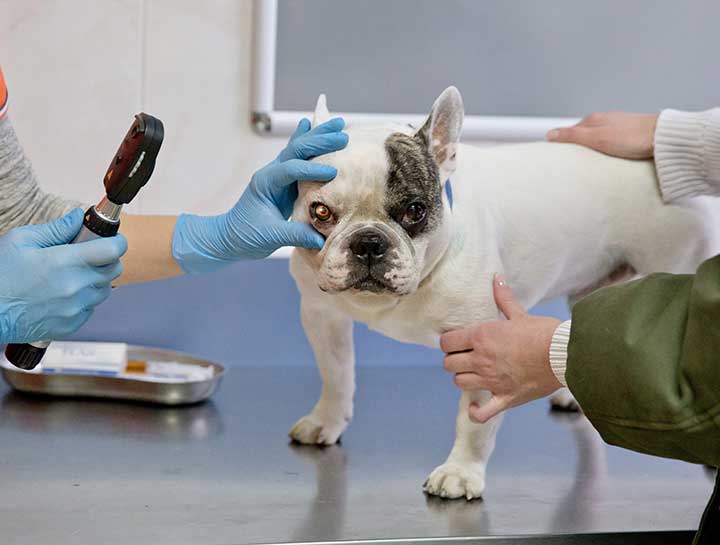Ophthalmology
Minor to severe eye care for pets
At Pasadena Pets Veterinary Hospital, we are here to offer you care for your pets’ eyes. Our veterinarians perform comprehensive eye exams and are able to test for multiple commonly treated diseases of the eye, including (but not limited to) cataracts, glaucoma, corneal ulcers, and ocular inflammation.
Glaucoma Management
Glaucoma is a common condition in which the fluid pressure inside the eye increases, resulting in damage to the optic nerve, followed by loss of vision and blindness. There are two types of glaucoma. Primary, or chronic, glaucoma is hereditary or develops as your pet ages. Secondary, or acute, glaucoma develops as the result of an injury or illness. Because secondary glaucoma can progress rapidly, it is considered an emergency.
Symptoms of glaucoma to look for include:
- Redness in the eye
- Tearing or discharge
- Eye sensitivity to light
- Pain
- Cloudy-looking eye
- Bulging eyeball
At Pasadena Pets Veterinary Hospital, we recommend that your pet receive a routine glaucoma exam as part of his or her regular wellness care. The exam is not only an effective screening measure for chronic and acute glaucoma, but it can also help set a baseline measurement of your pet's normal intraocular pressure (IOP). Establishing an IOP baseline is important because the normal measurement can vary between species, breeds, and even individual pets.
This is a noninvasive, simple procedure that should not cause your pet any pain or discomfort. We apply a mild anesthetic eye drop to ensure your pet is comfortable during the exam.
Keratoconjunctivitis sicca (KCS) -- Dry Eye Condition
KCS is a common condition found in dogs that affects the production of tears. The cause is usually related to an immune-mediated condition, and is most common in certain breeds, like; Boston Terriers, Cocker Spaniels, and English Bulldogs.
Symptoms include discharge from the eye, redness around the whites of the eyes, constant blinking, and rubbing of the face. A special test called Schirmer’s Test is given to determine the amount, or lack thereof, of tears produced by the eye glands.
Corneal Ulcers
Corneal ulcers are a very common condition that both dogs and cats can get from trauma to the eye like a scratch or bump.
Some signs of corneal ulcers that pet owners recognize are:
- Redness and inflammation
- Constant blinking and squinting
- Constant rubbing of the face
- Discharge from the eye
Certain dog breeds, especially dogs with short snouts, are more susceptible to corneal ulcers. Most of the time, corneal ulcers develop from a scratch on the eyeball while playing outside, with other pets, or from scratching an itch around their face. Fluorescein Dye Stain is the test of choice to diagnose corneal ulcers and can be done quickly with minimal discomfort to your pet.
Diamond Burr Superficial Keratotomy
For Non-Healing Ulcers, we recommend doing the Diamond Burr Superficial Keratotomy. In some papers, it's reported to have a 92.5% success rate in healing an ulcer. It's especially useful for boxer ulcers that tend to heal poorly with conventional treatments.
Call us at (626) 568-1115 if you think your pet needs an eye exam.

